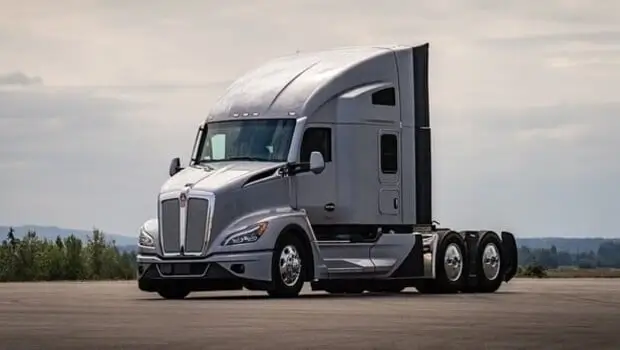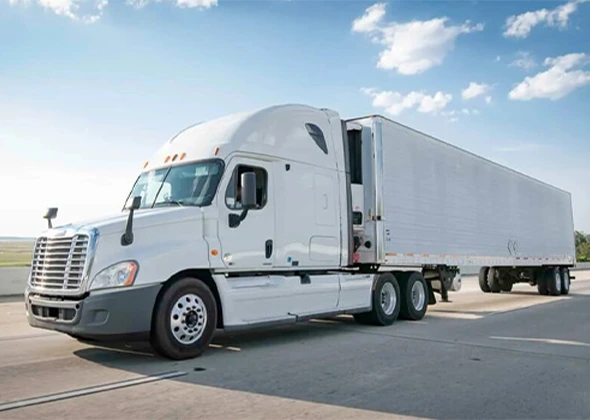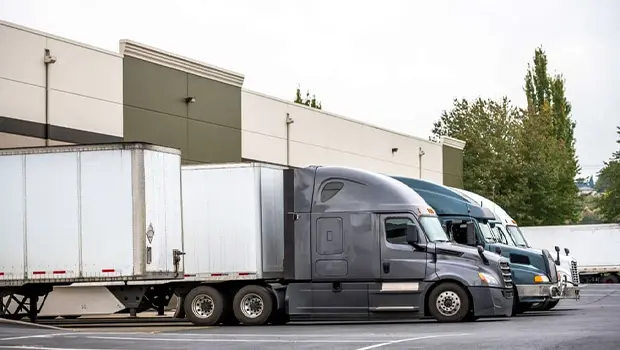
January 23, 2024

5239 Views

4 min read

January 23, 2024

5692 Views

7 min read
In trucking, margins are often slim, making efficiency and profitability crucial. Trucking business owners can use load boards and dispatchers to help with this. Each has unique qualities that can significantly impact operations. Choosing between dispatchers and load boards involves considering how each functions as an intermediary between shippers and trucking companies and which aligns better with your business needs.
Independent drivers often face long hours finding profitable loads instead of being on the road. A professional truck dispatcher helps take that burden away by connecting drivers with reliable freight through a truck dispatcher load board. Instead of spending hours browsing multiple dispatch boards, the dispatcher monitors market trends and negotiates the best rates. This means more miles, less empty driving, and better use of time.
Owner-operators who use a dispatch load board benefit from someone tracking routes, managing brokers, and handling paperwork. A dispatcher keeps communication clear between shippers, brokers, and drivers, so no detail is missed. Many drivers also rely on their dispatcher for help with compliance and record management, often supported by tools like a logbook service. Having this kind of support means fewer mistakes and more focus on what matters — driving and earning.
A truck dispatcher does much more than just find freight. They coordinate pickup and delivery schedules, handle rate confirmations, and assist with delays or breakdowns. With access to advanced dispatch load board systems, dispatchers track real-time market data and quickly spot profitable opportunities. Instead of dealing with confusing dispatching boards, drivers get precise information about available dispatch truck loads suited for their routes and vehicle types.
Good dispatchers help owner-operators manage several challenges at once:
Drivers who use truck dispatcher load board tools through professional dispatchers often notice a steady rise in income. Reliable dispatchers track loads through a dispatch board and make sure drivers stay busy with the best-paying freight. Many owner-operators also choose to expand their operations with dispatch services, which allows them to focus fully on driving while experts manage freight coordination and rate negotiations.
When managed well, a dispatcher’s work turns chaotic schedules into simple, predictable plans. The right partner with access to top dispatch load board tools helps drivers stay on the road, stay safe, and stay profitable. Many drivers also rely on their dispatcher for help with compliance and record management, often supported by tools like a logbook service.
Dispatchers oversee freight operations and provide coordination in the trucking industry for carriers and owner-operators. Dispatchers are tasked with finding and securing loads, negotiating terms with brokers, and organizing the logistics of dispatching drivers along planned routes.
Their role requires a high level of coordination skills, as they also handle administrative duties, such as checking driver logs and monitoring their working hours. Experienced dispatchers go further by aiding in regulatory compliance, managing operational delays, and enhancing relationships with shippers. For these services, dispatchers receive a cut of the earnings for each load they arrange.

A load board is an online platform connecting shippers, brokers, and carriers, facilitating the transportation of goods. It enables businesses and brokers to find carriers with the necessary trucks and drivers and allows carriers to find loads, negotiate rates, and maintain truck utilization. Users access these boards online to search or list loads. Carriers typically contact shippers directly to book loads.

Here are some of the advantages and challenges of using dispatchers:

Here are some of the advantages and challenges of using load boards:
Many logistics companies use a combination of dispatchers and load boards to optimize their operations. While dispatchers provide the personal touch and expertise, load boards offer many opportunities and flexibility. The balance between the two depends on the specific needs and capabilities of the logistics provider.
Load boards may offer a more cost-effective and flexible solution for smaller carriers or independent operators, especially for sporadic shipping needs. Conversely, larger companies with consistent, high-volume shipments might benefit more from the personalized services offered by dispatchers.
Client relationships are another critical factor. Businesses with long-term contracts or regular clients may find that dispatchers can offer a consistent and personalized service, fostering stronger and more reliable relationships. In contrast, while efficient, load boards may not provide the same level of personal interaction, which could be a significant consideration for companies prioritizing customer service and long-term partnerships.
Technology has enhanced both dispatching and load boards in recent years. Dispatch software provides tools for managing drivers, trucks, loads, and invoicing. Load board technology offers carriers mobile apps, load tracking, and integrated documentation.

Other tech advances include:
Dispatchers and load boards facilitate getting loads covered in the trucking world. Dispatchers provide personalized service and coaching, while load boards offer on-demand load searching and booking. Optimizing outcomes often involves finding the right balance between the two and using technological improvements. Truckers can advance their business goals on the open road with the right combination of resources.
Test